CRN Wessex have launched a special public health issue of their VISION magazine for winter 2018.
You can read it here!
Latest research and knowledge exchange news at Bournemouth University
CRN Wessex have launched a special public health issue of their VISION magazine for winter 2018.
You can read it here!
Patient data underpins and leads to improvements in research and care.
The National Institute for Health Research (NIHR) has recently shared a resource surrounding the use of patient data in clinical research. The page contains a number of useful links to guidance such as the NHS pages on why patients’ data matters and also the Understanding Patient Data resource, which outlines a set of key principles that should be followed in using patient data for research purposes.
It’s important that if a researcher uses patient data, that they acknowledge it by using the following citation –
“This work uses data provided by patients and collected by the NHS as part of their care and support”
The above has been developed by use MY data, a movement of patients, carers and relatives, in place to ensure that the patient data used is protected by the appropriate safeguards, and is treated with the respect and confidentiality it deserves.
The page likewise signposts the above programme which allows patients and the public to opt-out of their confidential patient information being used for planning and research purposes.
All health and care organisation will uphold these choices by March 2020.
Are you currently in the process of designing, setting up or planning your research study, and would like to extend your project into the NHS?
Yes? Then you may want to take advantage of this training opportunity.
Oliver Hopper (Research & Development Coordinator, Royal Bournemouth and Christchurch Hospital) and Suzy Wignall (Clinical Governance Advisor, R&KEO) will be running a training session on how to use, and complete your own application within the IRAS system.
IRAS (Integrated Research Application System) is the system used to gain approvals from the NHS Research Ethics Committee and Health Research Authority, before rolling out your study to NHS Trusts. To support this, the session will include the background to research ethics and the approvals required for NHS research.
The session will also be interactive, and so as participants, you will have the opportunity to go through the form itself and complete the sections, with guidance on what the reviewers are expecting to see in your answers, and tips on how to best use the system.
The training will take place in Studland House – Lansdowne Campus, room 102 this Wednesday 5th December, at 09:30am – 12:30pm.
Get in touch with Research Ethics if you would like to register your interest and book a place.
The BASES conference 2018 took place on 27-28 November at Harrogate Convention Centre.
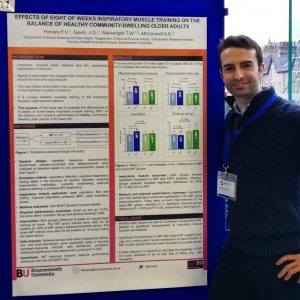
Figure 1. Presenting BU research on the effect of 8 weeks inspiratory muscle training on the balance of healthy older adults, during the first day of the BASES conference 2018
Thanks to my supervisors Professor McConnell, Dr Gavin and Professor Wainwright and with the support from Bournemouth University I had the possibility to present my research titled: The effects of 8 weeks of inspiratory muscle training on the balance of healthy older people: a randomised, double-blind, placebo controlled trial. Figure 1.
You can now read what happened and look at the media from the conference clicking the twitter button right below.

Personally, I found extremely interesting the talk of Professor Steven N Blair, Professor Ken Fox and Professor John Buckley (Figure 2).
They explained, thought direct experiences, how sports science has evolved and what we (including physiologists, kinesiologists, strength and conditioning coaches) should consider when developing research proposals. One of the many take-home points was that sports science is today considered science for/of health and that is crucial to seek collaboration between researchers and the community. Paraphrasing a famous quote from J.R.R. Tolkien, it is from the ordinary folks that research questions arise.
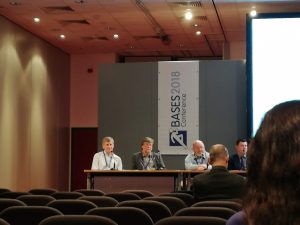
Professor Steven N Blair, Professor Ken Fox and Professor John Buckley discussing the past, the present and the future of sports science.
Concluding, it was a motivating experience, and I was pleased to receive many questions about my research. Definitely, a conference worth to consider also for the next year.
If you are interested in reading more about BASES, follow the link below
https://www.bases.org.uk/snews-about_us-news.html
If you want to know more about myself click the button right below

Thank you for your attention.
A partnership has been formed between the National Institute for Health Research (NIHR), the Health Research Authority (HRA), the Medicines and Healthcare Products Regulatory Agency (MHRA), and the Care Quality Commission (CQC).
This partnership is looking to develop new assessment guidance and indicators as part of the CQC’s monitoring and inspection programme. This means that as part of inspection, an NHS Trust’s research activity will likewise be assessed. Research is recognised as a key factor in delivering quality patient care
Find out more here, including an article on the benefit of research for patients, that was published in the Royal College of Physicians member magazine, Commentary.
Do you feel there are any gaps in health and social care research? The NIHR are advertising the opportunity to submit your own idea, or ideas, for potential future research projects.
You can submit your idea here, and read example suggestions to help inspire you!
Once submitted, the NIHR will compare the suggestion with existing or ongoing research and will likewise seek advice from a number of stakeholders including patients and members of the public.
Remember that support is on offer at BU if you are thinking of introducing your research ideas into the NHS – email the Research Ethics mailbox, and take a look at the Clinical Governance blog.
Supporting Health and Social Care Research
A range of resources and best practice success stories have been pulled together to make promoting research and its benefits to patient care more accessible to everyone.
The NIHR website now hosts a number of pages and resources, such as how the NIHR can help academic researchers to conduct and deliver research, and success stories from amongst the research community – access the following link to find out more.
Remember that support is on offer at BU if you are thinking of introducing your research ideas into the NHS – email the Research Ethics mailbox, and take a look at the Clinical Governance blog.
NIHR ENRICH – Enabling Research in Care Homes have released a new support resource for researchers in care homes.
Follow this link to access the toolkit and other useful information such as advice, guidance and the latest news.
Are you currently in the process of designing, setting up or planning your research study, and would like to extend your project into the NHS?
Yes? Then you may want to take advantage of this training opportunity.
Oliver Hopper (Research & Development Coordinator, Royal Bournemouth and Christchurch Hospital) and Suzy Wignall (Clinical Governance Advisor, R&KEO) will be running a training session on how to use, and complete your own application within the IRAS system.
IRAS (Integrated Research Application System) is the system used to gain approvals from the NHS Research Ethics Committee and Health Research Authority, before rolling out your study to NHS Trusts. To support this, the session will include the background to research ethics and the approvals required for NHS research.
The session will also be interactive, and so as participants, you will have the opportunity to go through the form itself and complete the sections, with guidance on what the reviewers are expecting to see in your answers, and tips on how to best use the system.
The training will take place in Studland House – Lansdowne Campus, room 102 on Wednesday 5th December, at 09:30am – 12:30pm.
Get in touch with Research Ethics if you would like to register your interest and book a place.
Do you want to have a say in deciding priorities for health research?
Have your say and rank priorities for research to help make care safer for adults with complex health needs. The list of priority areas in this survey was identified by patients, carers, the public and healthcare staff who filled out the first survey earlier this year. The survey is open to those not currently doing healthcare research.
The survey can be accessed here. Deadline: 12 November 2018
The NIHR Imperial Patient Safety Translational Research Centre, who are running this survey with the James Lind Alliance, will host a workshop on 17th December (London) with the results of this survey to come to a consensus for the top 10 areas for research. The results will be widely publicised to encourage research funding bodies and research teams to address these questions. It will also do research in some of these areas itself.
A recent article published on the Wessex Clinical Research Network website explores the experience of a local physiotherapist, based at Dorset County Hospital (DCH), who became the Principal Investigator for a clinical research study. Having undertaken the role for the first time, the article contains his experience of performing the duty and how this was balanced with his pre-existing clinical tasks and responsibilities.
The CORKA study investigates rehabilitation for patients that have undergone a knee arthoplasty and was the first collaborative study between DCH and Dorset Healthcare. To date the study has recruited over 300 participants.
Remember that support is on offer at BU if you are thinking of introducing your research ideas into the NHS – email the Research Ethics mailbox, and take a look at the Clinical Governance blog.
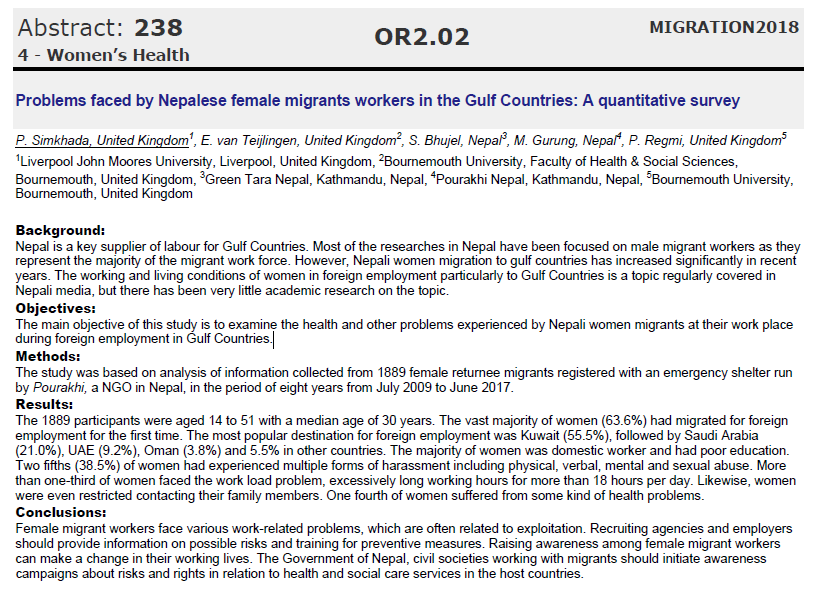 Two days ago Bournemouth University Visiting Professor Padam Simkhada presented our paper ‘Problems faced by Nepalese female migrants workers in the Gulf Countries: A quantitative survey’ at the International Conference on Migration Health in Rome, Italy [1]. The study reports on the health and other problems experienced by Nepali women migrants at their work place during foreign employment in Gulf Countries. The paper is building on earlier research with the charity Pourakhi in Kathmandu which helps women who return from working abroad in trouble. The first paper was publish earlier this year in the journal BMC International Health & Human Rights [2].
Two days ago Bournemouth University Visiting Professor Padam Simkhada presented our paper ‘Problems faced by Nepalese female migrants workers in the Gulf Countries: A quantitative survey’ at the International Conference on Migration Health in Rome, Italy [1]. The study reports on the health and other problems experienced by Nepali women migrants at their work place during foreign employment in Gulf Countries. The paper is building on earlier research with the charity Pourakhi in Kathmandu which helps women who return from working abroad in trouble. The first paper was publish earlier this year in the journal BMC International Health & Human Rights [2]. 
The conference presentation was co-authored with BU’s Dr. Pramod Regmi and Prof. Edwin van Teijlingen, Ms. Manju Gurung from Pourakhi, Ms. Samjhana Bhujel from Green Tara Nepal, and Padam Simkhada, who is professor in the Public Health Institute at Liverpool John Moores University.
References:
With the forthcoming REF 2021 in mind we would like to encourage both staff and postgraduate students to consider writing up their literature reviews as journal articles. Systematic and scoping reviews are a great way of publishing quality publications. They are highly valued as REF submissions, especially, but not only, in the health field.
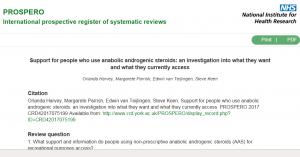
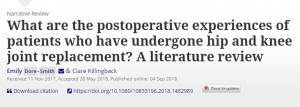 There is plenty of support at Bournemouth University: from academic colleagues, with vast experience in writing reviews, to the library team, who can advise on, for example, developing your systematic search strategy and which databases to search.
There is plenty of support at Bournemouth University: from academic colleagues, with vast experience in writing reviews, to the library team, who can advise on, for example, developing your systematic search strategy and which databases to search.
You can start with publishing your review question and research strategy on PROSPERO, international prospective register of systematic reviews. We would like to highlight just one BU example in the field of the social sciences. FHSS PhD student Orlanda Harvey published her proposed review ‘Support for people who use anabolic androgenic steroids: an investigation into what they want and what they currently access’ late last year on PROSPERO [1].
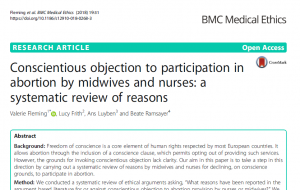
You might like to have a look at reviews published by Bournemouth University staff, which can be found by searching BURO, our institutional repository of research outputs. Moreover, BU academics have published several methods papers on the doing and writing systematic reviews [2-4].
Information about searching the literature for systematic reviews is available on this guide by the library team.
Other pages with useful information include:
Hopefully we have encouraged you to think about publishing your literature reviews as separate articles, and to seek help early in that process!
José López Blanco & Edwin van Teijlingen
For further information, please contact:
José López Blanco, Faculty Librarian (Health and Social Sciences), Library & Learning Support, Academic Services at tel 67350 or email: hsslibteam@bournemouth.ac.uk
References:
The Department of Events and Leisure (DEL) has a long-standing tradition of contributing their expertise to events and festival organisations throughout the UK. This event/festival season has been exceptionally busy for DEL and has seen staff collaborating with organisations in Northern Ireland, London and in Dorset.
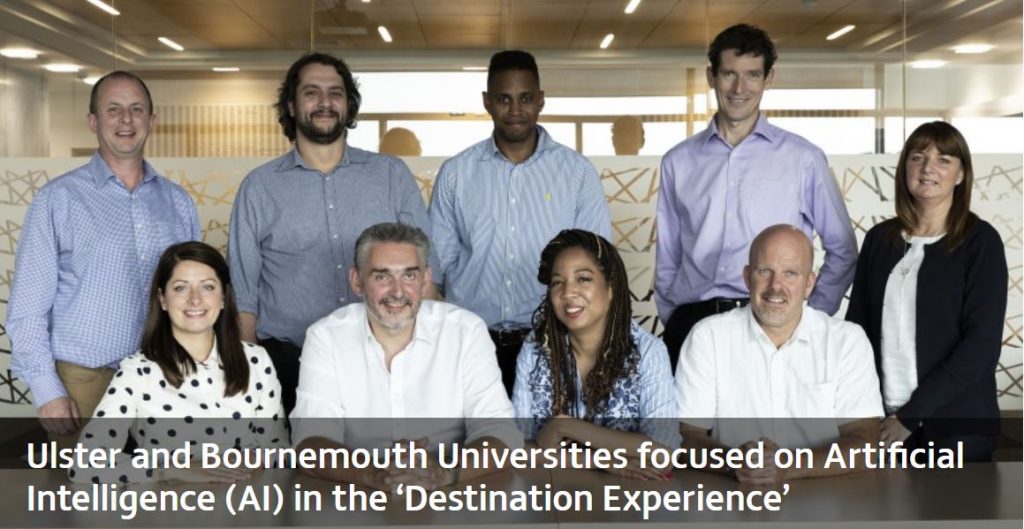
Dr Nicole Ferdinand ( front row, third from left) at project update meeting at Ulster University attended by Fergus Mckay, Operations Manager, International NW200 (back row, 1st from left)
Dr Nicole Ferdinand, Senior Academic in Events Management through a collaborative research project with Ulster University is currently working with the International NW200. Fergus Mckay, Operations Director has been extremely positive about the results of the project so far and the value it has delivered for his organisation. At a project update meeting hosted on August 24, 2018, he provided the following feedback:
“The collaboration with Ulster University and Bournemouth University has enabled us to investigate technology enabled means to create accessible, real-time and personalised event experiences both at the event and throughout our fans visit to the area. Looking for fun and unique experiences for event participants is a critical event objective and the recent twitter bot was a means by which to create and share fun experiences.”
Dr Aaron Yankholmes, VIP at Notting Hill Carnival 2018
Dr Aaron Yankholmes, Academic in Events and Leisure was a VIP at the Notting Hill Carnival on bank holiday Monday August 27th, 2018. He was specially invited by the organising committee to the celebrations this year. DEL staff have a long history with the organization, having collaborated with NHC stakeholders on a research informed strategic visioning project in 2013 entitled Carnival Futures. DEL staff have also published a number of articles and case studies on this event. This year was first time that the organisation has hosted a DEL member of staff at their event.
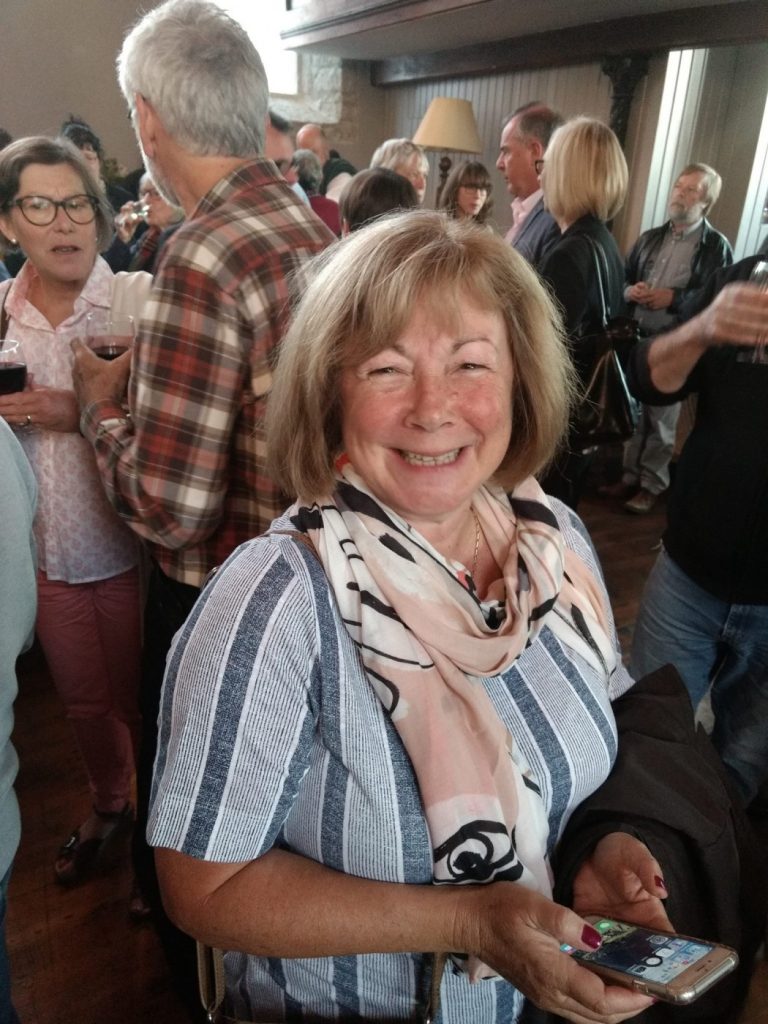
Dr Caroline Jackson at B-Side Festival Launch
Dr Caroline Jackson and Dr Nicole Ferdinand were also VIP guests at the B-side Festival opening. Dr Ferdinand has also joined the B-side Festival Board of Directors with a view to supporting B-side with implementing a programme of institutional strengthening activities supported by their recently awarded Arts Council Catalyst Fund.
A first year BA Television Production student, Rowan Prosser and Lecturer, Annie East share their thoughts on a pilot research project using 360-degree filming technology.
Fusion BU2025 looks to ensure that students are informed in the ‘latest thinking in practice and research’ it also looks to ensure graduates are ‘innovative’ and ‘have research skills’. The doctoral research that Annie East is engaged with seeks to discover the ways in which students are working with health and safety risk management processes on their location film shoots. The pilot study looked to test the use of a 360-degree camera on a student shoot as a Virtual Reality (VR) elicitation tool for data gathering . Here Annie East and first year student, Rowan Prosser, reflect on his role as student research assistant, working with the 360 degree camera on a second year student film shoot.
Thoughts on student/lecturer collaboration.
Rowan Prosser: As a first year student the opportunity to work on academic research was both intriguing and a great opportunity to learn. The project gave me a chance to see how research is carried out in an academic way, seeing the correct processes of it all. It was all carefully considered and planned accordingly, my needs and any questions I had were answered immediately; something you don’t get when working with other students. When planning for the pilot project, the meetings that took place were well informed. In contrast, when I work with fellow students, there is sometimes difficulty in getting to the point of the discussion or the heart of the problem.
Annie East: Finding a student keen to work on research that was testing relatively new technology was key for this pilot. Meeting with Rowan for the first time as a researcher rather than as lecturer was a turning point. The power dynamics of student/lecturer dissolved with Rowan becoming more of an equal in our journey to master the technology and workflow of the camera. I chose to work with a student to lessen the power dynamic on the student film shoot; taking myself physically away from their shoot and allowing a student to operate the 360-degree camera.
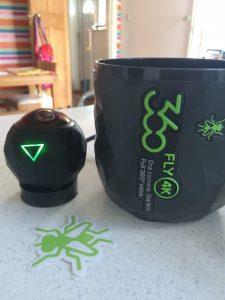 360-degree camera
360-degree camera
Reflections on the approach.
Rowan Prosser: It was an interesting scenario to be surrounded by second year BA Television Production students. Due to the role I had (responsibility for the 360-degree camera) they all tried to adhere to my needs and requests throughout the shoot. This allowed me to make sure that my camera work was achieved. If I was in the way, they would politely ask me to move the camera. The kit used really interested me; 360-degree video is something that is slowly coming into the fold – people (including the 2ndyear students I was working with) are very interested in the camera and how it works. This allowed me to educate and show them.
Annie East: Interestingly it is not just the power dynamics of lecturer/student that are changing with this work but also student-to-student interactions. The collaboration gave Rowan a new perspective and a window into the world of a second year student film shoot, levelling the inter-year dynamics somewhat. Silently it also afforded him institutional power; he became the educator and sage.
Reports from the field.
Rowan Prosser: Observing second-year students on their film shoots gave me the ability to blend in since I was a fellow student. We were able to talk about the course, topics we enjoyed thus allowing the presence of a camera filming their every movement less uncomfortable. It was interesting to observe the similarities of 2nd-year students to 1st years on the shoot. The classic way in which clear leaders can sometimes emerge and take over other people’s role was seen, this being an issue with student filmmaking, when someone isn’t happy with how someone else is conducting their role.
Annie East: Rowan’s reflections display some of the key tensions in setting up this research project; how do we observe students in the field and in what ways does that change the way they behave. This pilot confirmed going forward that the data to be captured is not the footage itself but the conversation about the footage when each crew member put on their VR visor to re-immerse themselves back into their field. This shifts the research focus away from behaviour and towards reflections on action and reflections in action.
Moving forward
Rowan Prosser: I really enjoyed the experience, as the opportunity to carry out research for an academic is not something that happens a lot. It gave me a clear insight into the future on how I can carry out future research and also taught me a lot about 360 cameras which I have not previously used. The group of second year students responded very well to me being around, and in the group, so it would be interesting to see how other groups would react to my involvement.
Annie East: These reflections suggest a shift in student identity and changing power dynamics between researcher and student and between student-to-student. The confidence that this work appears to have afforded Rowan sets him on the path of the lifelong learner; someone thirsty for new challenges. The challenge for BU2025 is the possible perception that working on academic research is a rare experience. Going forward Rowan can choose to be part of the full study and be more experienced for it; a scaffolded approach to collaborative research rather than a siloed one. The vision of fusion in BU2025 features a strong sense of inclusivity which we can promote to our students creating not only rounded academics but also fully rounded students, confident to take on ‘intriguing’ research projects.
References
Bournemouth University BU2025 Strategic Plan 2018 (online). Available from: https://www1.bournemouth.ac.uk/sites/default/files/asset/document/bu2025-strategic-plan.pdf (Accessed 10 August 2018)
Foucault, M., 1991. Discipline and punish. The birth of the prison. London: Penguin.
Schön, D. A., 1983. The reflective practitioner. [online] : how professionals think in action. New York : Basic Books.
Vygotsky, L. S. and Cole, M., 1978. Mind in society : the development of higher psychological processes / L. S. Vygotsky ; edited by Michael Cole … [et al.] Cambridge : Harvard University Press.
Bournemouth University as a partner is involved in Interreg project “Visitor experience Innovation through Systematic Text Analytics and Augmented Reality” (VISTA AR).
The project deals with development and implementation of a range of exciting augmented reality and virtual reality experiences for a number of tourist attractions in the South of England and the North of France.
The Vista AR project is featured in a promotional video of Interreg. In the video Prof Andi Smart (project PI, University of Exeter) introduces the project.
You can watch the video on-line here.


Securing funds from British Council to organise a Newton Funds Researcher Links workshop required good effort and persistence. Careful consideration of the feedback from an unsuccessful submission helped identifying where improvements were needed – we were successful in our second attempt. I believe the most important factors contributing to the success of the application were: the theme is topical and relevant for both countries (UK and South Africa), including active world-recognised researchers as mentors, having trach record of work and good connections in the host country (South Africa in this case). I have already being to South Africa delivering workshops to public sector practitioners on a similar subject funded by the South African National Research Foundation.
The workshop focused on ‘Research capacity for sustainable ecosystem-based management of estuaries and coasts’ and it was held on 19-21 June 2018 at the uShaka Marine World in Durban. There were 42 participants, 23 from South Africa and 19 from the UK, including early-career researchers from natural and social sciences backgrounds, established researchers and government practitioners involved in policy-making or implementing policy related to management of coasts and estuaries. I coordinated the workshop in collaboration with Professor Trevor Hill from University of KwaZulu-Natal and had a great support from Bronwyn Goble from SAAMBR/ Oceanographic Research Institute and Katie Smyth (University of Hull). The contribution from Mike Elliott (Hull), Andrew Cooper (Ulster), Ursula Scharler (UKZN) and Alan Whitfield (SAIAB) as mentors was greatly appreciated for the support and inspiration given to the early career participants.
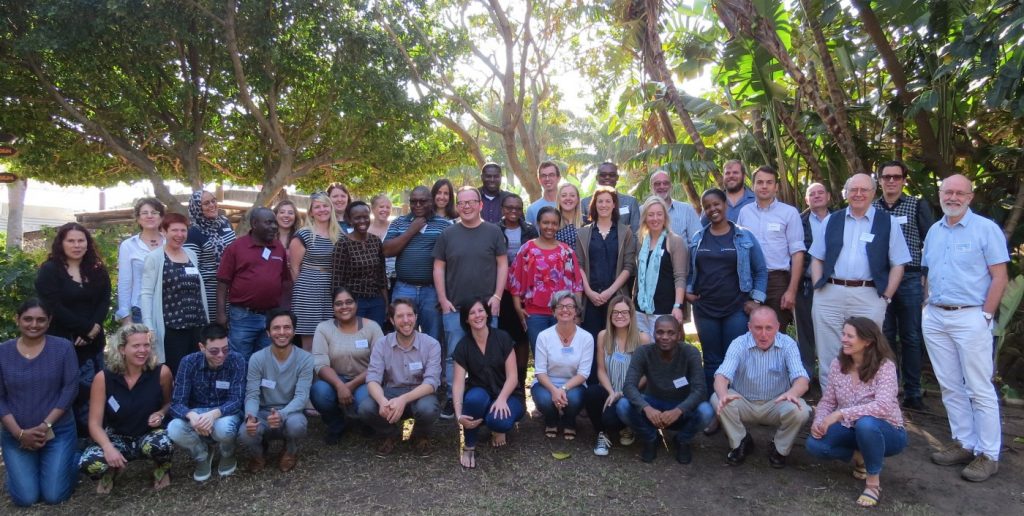
Participants of the Researcher Links workshop entitled ‘Research capacity for sustainable ecosystem-based management of estuaries and coasts’ (19-21 July 2018, Durban, South Africa) coordinated by Dr Luciana Esteves (Dep Life & Environmental Sciences, SciTech).
I can only say that the experience of engaging with such talented and vibrant group of early career researchers and stimulating open discussions about career directions and prospects, focusing particularly on the importance of international collaboration and closing the research-practice gaps was truly rewarding. It was uplifting to see the connections building between UK and South African researchers and how links with government and NGO practitioners were providing a new direction to the career of some participants. From day 1 participants were talking to each other as old colleagues and engrossed in the activities proposed. No wonder some came out with clear plans on how they will work together, from designing teaching material to collaborating in research proposals and papers, consolidated the links created during the workshop. These links are evident in the action plans participants were asked to produce at the end of the workshop.
Very important was the participation of government practitioners, acting at the national level designing policy and at the province level implementing policy. It was clear the interest for improving research-policy links and some examples of good practices in the UK and South Africa and new ideas were shared and discussed. For example, secondments of staff, co-funding of research posts/projects, ways of stimulating policy-driven research calls. In general terms, the workshop discussions highlighted two evident differences:
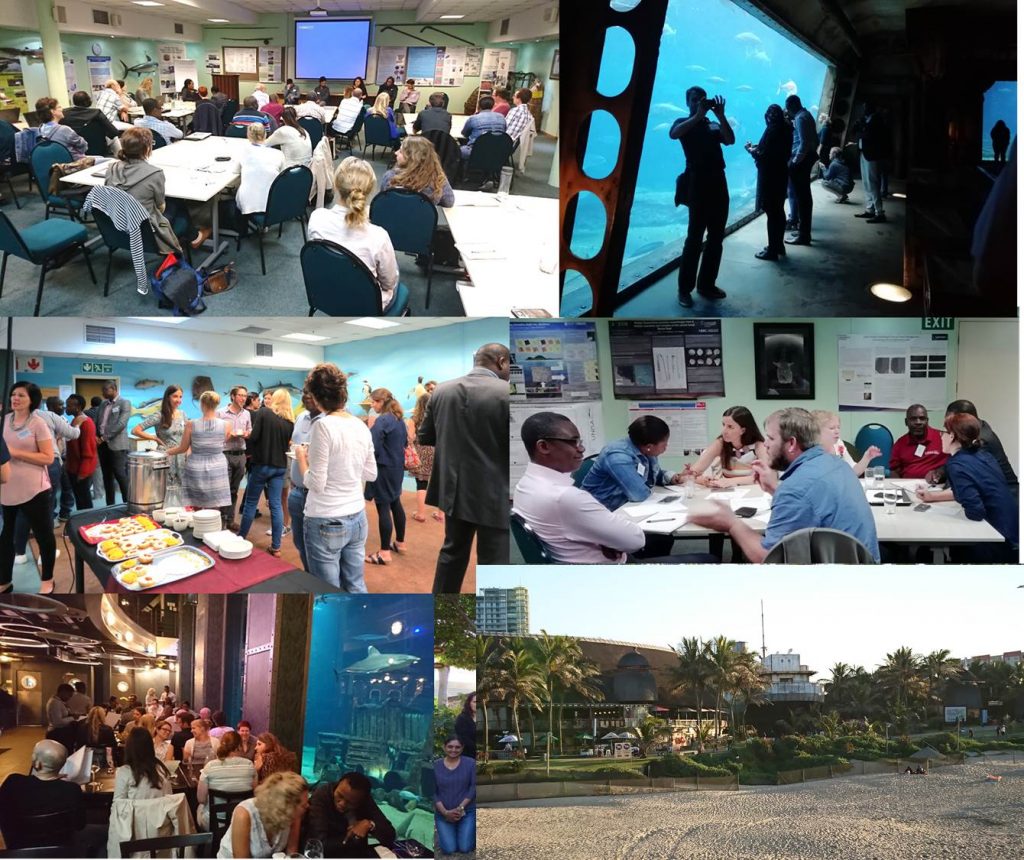
Besides lots of discussions, the activities included a visit to the marine aquarium, networking during coffee breaks and a fantastic dinner at the Cargo Hold restaurant (the boat you see on the bottom right).
 Congratulations to Dr. Ans Luyben on her latest co-authored midwifery publication: ‘Conscientious objection to participation in abortion by midwives and nurses: a systematic review of reasons’ in the Open Access journal BMC Medical Ethics. The UK co-authors are linked with Liverpool John Moores University and the University of Liverpool, whilst the third co-author is from Germany. Ans works in Swtzerland and she is Visiting Faculty in the Centre for Midwifery, Maternal & Perinatal Health (CMMPH).
Congratulations to Dr. Ans Luyben on her latest co-authored midwifery publication: ‘Conscientious objection to participation in abortion by midwives and nurses: a systematic review of reasons’ in the Open Access journal BMC Medical Ethics. The UK co-authors are linked with Liverpool John Moores University and the University of Liverpool, whilst the third co-author is from Germany. Ans works in Swtzerland and she is Visiting Faculty in the Centre for Midwifery, Maternal & Perinatal Health (CMMPH).
Congratulations!
Prof. Edwin van Teijlingen
CMMPH